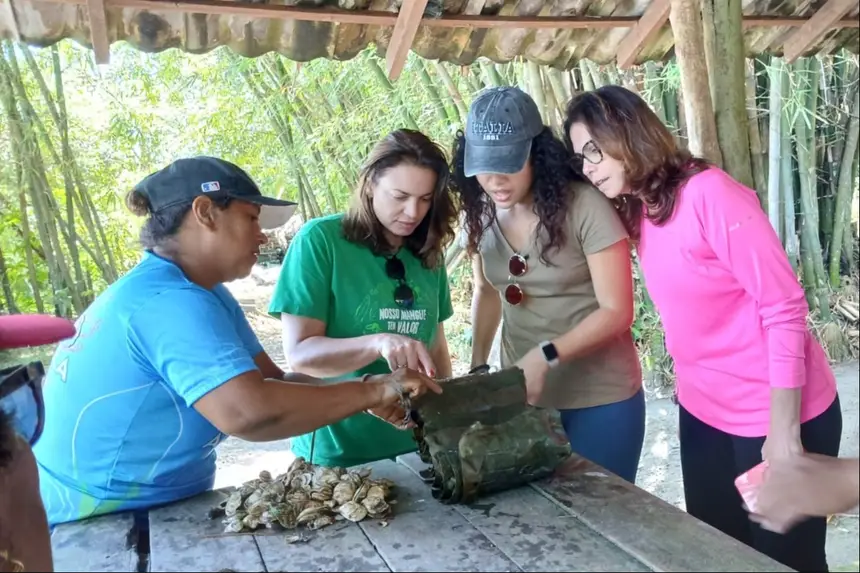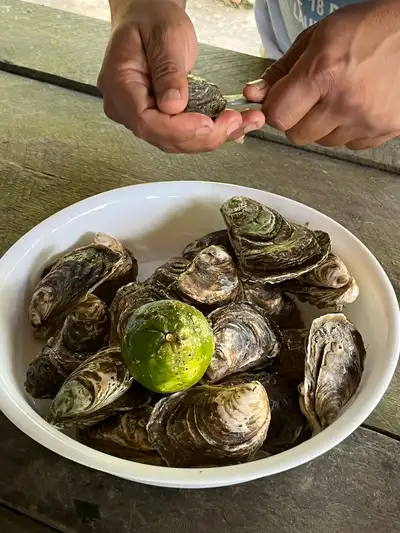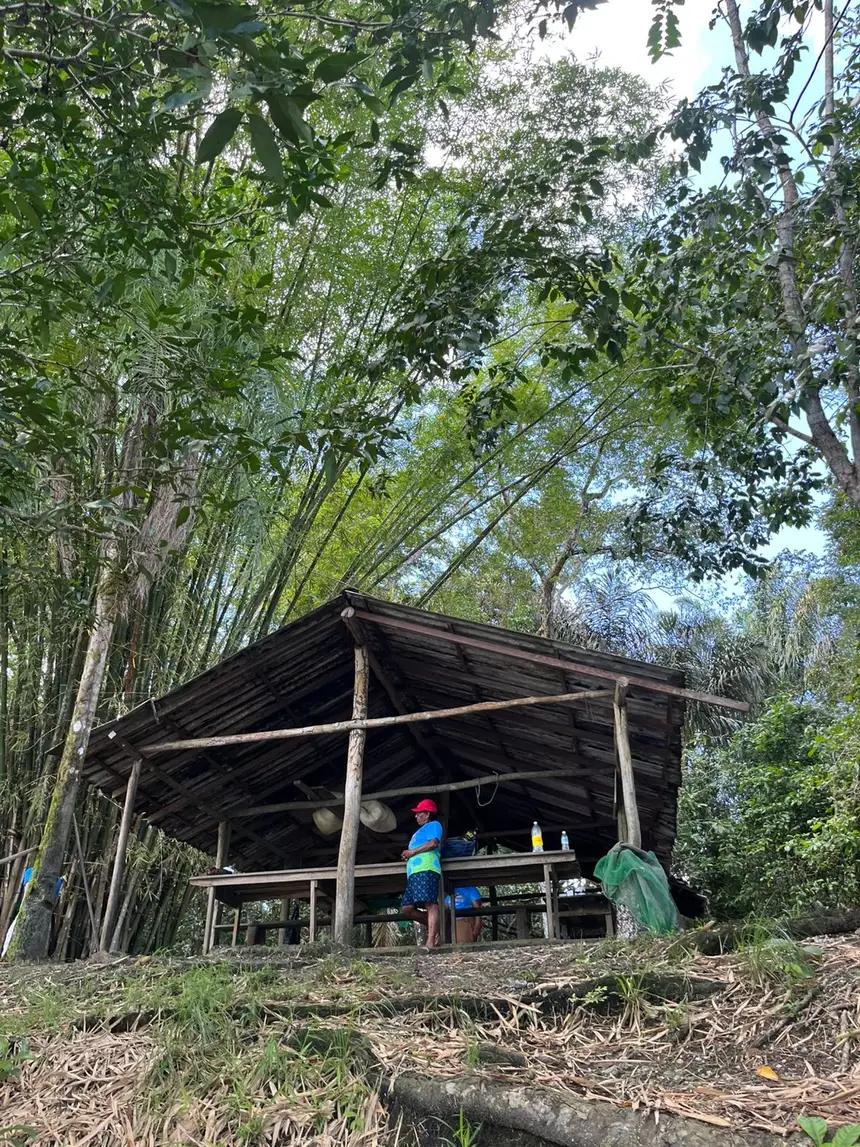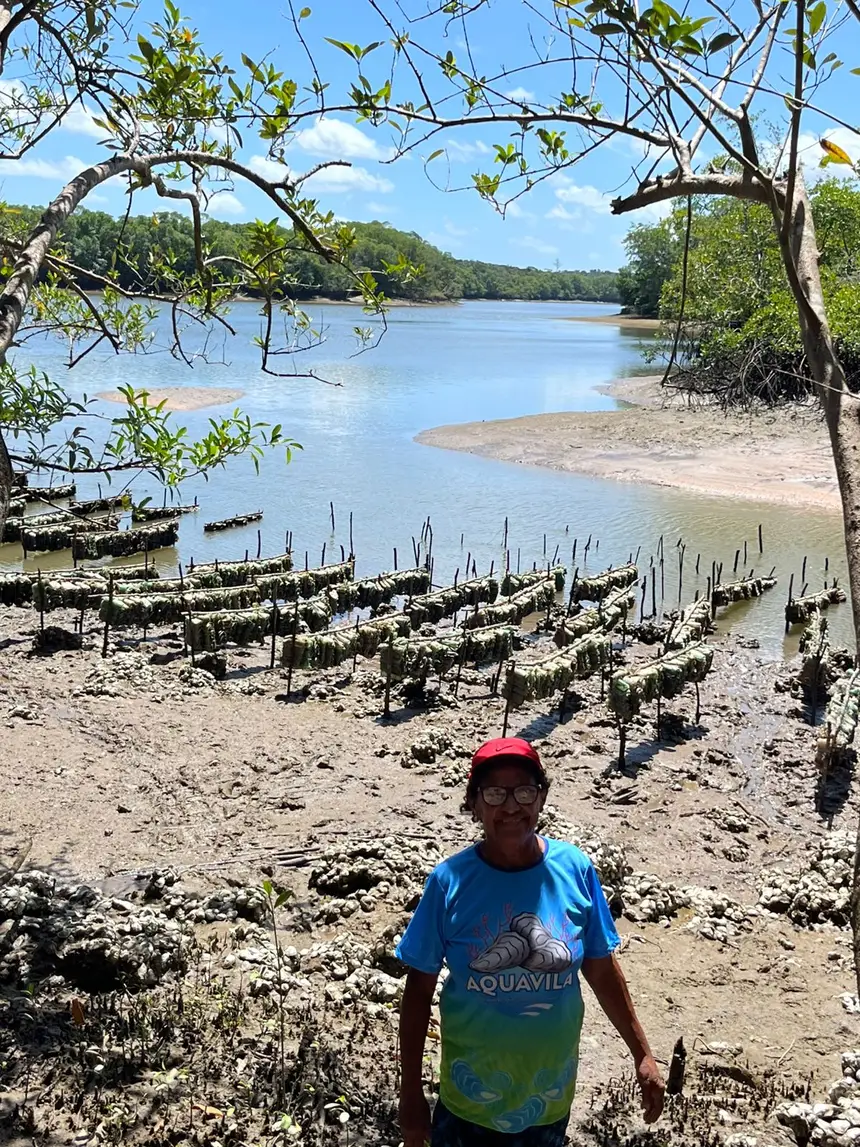Semas visits oyster production in Curuçá and strengthens sustainable use of coastal resources
Project partners - Aquavila Association, Rare Brazil, and UFPA - also visited the community of Lauro Sodré, where income generation is linked to environmental conservation
The State Secretariat for the Environment, Climate and Sustainability (Semas) participated in a technical visit to oyster production in the community of Lauro Sodré, in the municipality of Curuçá, northeastern Pará. Recognized for the sustainable production of oysters of the species Crassostrea brasiliana, the community transforms the reality of local production through sustainable practices. The initiative represents an important step in strengthening the bioeconomy and generating sustainable income along the Pará coast.

The meeting, which took place this week, was attended by the Deputy Secretary of Bioeconomy of Semas, Camille Bemerguy, and the Director of Bioeconomy, Iara Menezes. The activity also included the participation of the Aquavila Association, Rare Brazil, and the Federal University of Pará (UFPA), partners in conducting the local oyster production project.
The action is fully aligned with the guidelines of the State Bioeconomy Plan and integrates Semas' strategies to strengthen coastal initiatives that promote the sustainable use of natural resources.

Income and tradition - Oyster farming in the region is an example of how environmental conservation can be linked to income generation and the appreciation of traditional knowledge. The natural oyster beds along the Pará coast are a source of livelihood for many families and pave the way for the development of sustainable production chains.
In addition to preserving the natural oyster beds, the project aims to expand production by implementing floating cultivation and fattening technologies, as well as sanitary adjustments to the structures. These improvements aim to ensure higher quality and safety for the product, increasing access to markets and adding value to local activity.
“This initiative is fully aligned with the principles of the State Bioeconomy Plan, which seeks to promote sustainable development through the appreciation of natural resources and the culture of local populations. Seeing this production up close helps us think about more effective public policies connected to the territories,” highlighted Camille Bemerguy.











